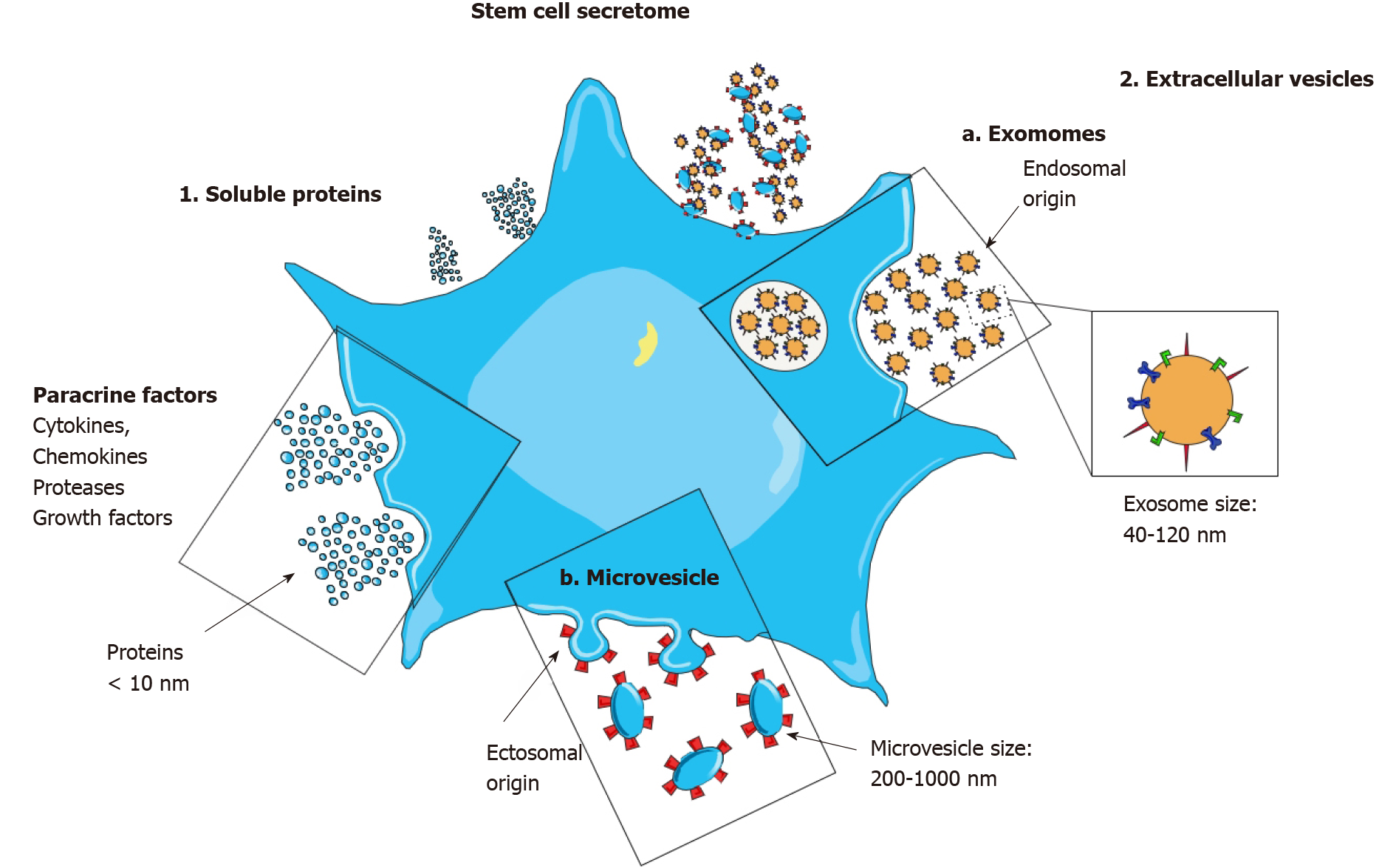Copyright
©The Author(s) 2021.
World J Stem Cells. Dec 26, 2021; 13(12): 1813-1825
Published online Dec 26, 2021. doi: 10.4252/wjsc.v13.i12.1813
Published online Dec 26, 2021. doi: 10.4252/wjsc.v13.i12.1813
Figure 2 Immunomodulation by the stem cell secretome.
The behavior of immune cells is altered by the secretion of various immunomodulatory factors. Mesenchymal stem cells (MSCs) secrete SOD3 which inhibits neutrophil activation and infiltration of leukocytes. Also, MSCs secrete PGE2, SDF-1, and interleukin (IL)-10 and lead to macrophage polarization to the M2 phenotype. Furthermore, MSCs induce HLAG5 secretion (shift to CD4β CD25β T reg population), Il-4 secretion (shift to Th2 population), constitutive expression of transforming growth factor β1 (TGF-β1), HGF, COX2, IL-10, IDO, and PGE2 which in turn inhibit T-cell proliferation. The secretion of IL-2 prevents inactivated NK cell proliferation, and secretion of HLAG5, TGF-β1, IDO, and PGE2 prevent cytokine secretion. In addition, MSCs cause B cells arrest in the G0/G1 phase and reduce the level of circulating immunoglobulins and secretion of CXCR4, CXCR5, CXCR7 by B cells. Due to the high amount of ISG gene expression, MSCs induce an antiviral response in the lungs. After secretion of immunomodulatory, anti-inflammatory, and microRNAs mediators and their extracellular vesicles-mediated transfer, MSCs lead to regulatory lymphocyte and M2 macrophage production. Differentiation of MSCs to various lung epithelial cells or differentiation of host tissue-resident stem cells lead to the secretion of numerous growth factors and angiogenic factors to stimulate revascularization, and consequently repair structural injury. Recovery of alveolar cell functions, their ATP stores, and metabolic capacity is feasible by direct transfer of functional mitochondria. Anti-fibrotic cytokines in high amounts reduce collagen fibers and subsequently hyper-inflammation and oxidative stress. A combination of anti-viral drugs with the immunomodulatory cargo of MSCs exosomes is a promising intervention tool in disease treatment[54]. Remdesivir is the best example of drug loading on exosomes[79]. Nevertheless, more studies are needed to clarify the exact mechanism of the specificity, targeted delivery and safety of exosomes.
- Citation: Ardalan M, Chodari L, Zununi Vahed S, Hosseiniyan Khatibi SM, Eftekhari A, Davaran S, Cucchiarini M, Roshangar L, Ahmadian E. Stem cell-derived biofactors fight against coronavirus infection. World J Stem Cells 2021; 13(12): 1813-1825
- URL: https://www.wjgnet.com/1948-0210/full/v13/i12/1813.htm
- DOI: https://dx.doi.org/10.4252/wjsc.v13.i12.1813









